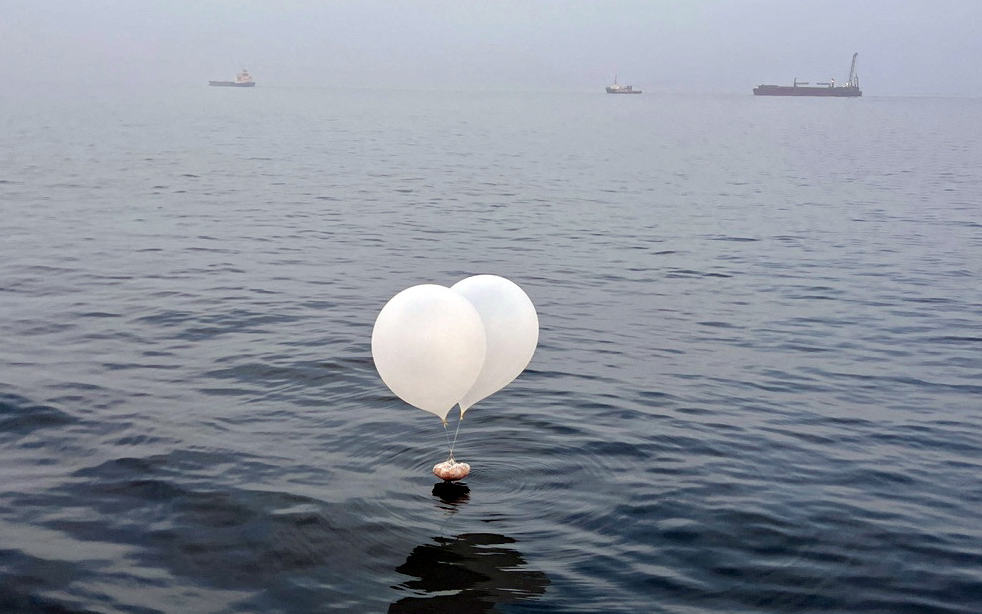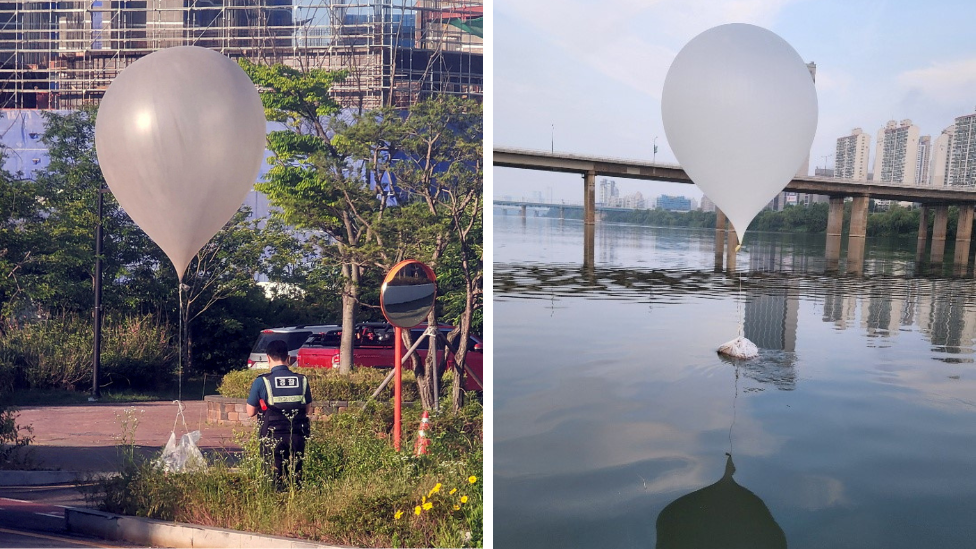South Korea to resume loudspeaker broadcasts over border in balloon row

The move comes as North Korea continues to send balloons carrying rubbish across the border into South Korea
- Published
South Korea has said it will resume propaganda broadcasts against North Korea for the first time in six years in response to Pyongyang's campaign of sending rubbish-filled balloons across the border.
Over 300 North Korean balloons were detected over Saturday and Sunday with around 80 landing in the South carrying scrap paper and plastic sheets.
North Korea is yet to respond to the announcement, but Pyongyang considers the loudspeaker propaganda broadcasts an act of war and has threatened to blow them up in the past.
Last month North Korea appeared to send at least 200 balloons carrying rubbish over the border in retaliation for propaganda leaflets sent from the south.

South Korean officials warn the public not to touch the balloons, but to report them
Over the weekend North Korea resumed its waste campaign against its neighbour by sending balloons carrying sacks of rubbish over the border into South Korea.
It was in retaliation for activists in the South sending 10 balloons containing leaflets critical of the North Korean regime on Friday, according to AFP news agency.
South Korea's military said there are no more balloons in the air adding that no hazardous materials have been found.
It has warned the public not to touch the balloons and to be aware of falling objects.
The public should report any sightings to the nearest police or military unit, the military added.
Following the latest batch of balloons, South Korea’s National Security Council said loudspeaker broadcasts on the border would resume on Sunday after agreeing to restart the loudspeakers for the first time since 2018.
On Thursday an activist group in South Korea said it had flown balloons into North Korea carrying leaflets criticising the leader Kim Jong Un, dollar bills and USB sticks with K-pop music videos - which is banned in the North.
In recent years, the broadcasts have included news from both Koreas and abroad as well as information on democracy and life in South Korea.
The South Korean military claims the broadcasts can be heard as much as 10km (6.2 miles) across the border in the day and up to 24km (15 miles) at night.
Watch: Rubbish-filled balloon saga explained… in 63 seconds
- Published29 May 2024
In May, a South Korea-based activist group claimed it had sent 20 balloons carrying anti-Pyongyang leaflets and USB sticks containing Korean pop music and music videos across the border.
Seoul's parliament passed a law in December 2020 that criminalises the launch of anti-Pyongyang leaflets, but critics have raised concerns related to freedom of speech and human rights.
North Korea has also launched balloons southward that attacked Seoul's leaders.
In one such launch in 2016, the balloons reportedly carried toilet paper, cigarette butts and rubbish. Seoul police described them as “hazardous biochemical substances”.
With additional reporting by Jake Kwon in Seoul